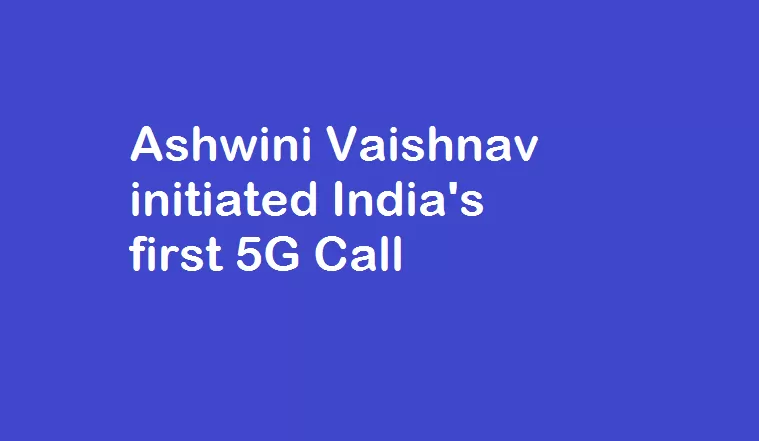India took a major step towards adopting 5G technology with its first successful 5G call. The call was initiated by Ashwini Vaishnav, the Minister of Communications and Information Technology, on July 5th, 2021. The call was made using Ericsson’s equipment at the Department of Telecommunications (DoT) in New Delhi.
The trial was conducted as part of the ongoing efforts to roll out 5G services in India as soon as possible. The government has set up a committee to oversee the rollout and implementation of 5G services across India. This committee is responsible for setting up testbeds for trials and demonstrations, formulating spectrum pricing policies, and deciding on security guidelines for network operators.
India’s first successful 5G call marks an important milestone in the country’s journey toward digital transformation. With this achievement, India is one step closer to joining other countries that have already adopted this advanced technology. As more trials are conducted in different parts of the country, we expect faster data speeds and better connectivity options for Indian consumers and businesses alike.
The significance of India’s first 5G call
The significance of India’s first 5G call lies in the potential it holds for the country’s technological development. The call, made by Ashwini Vaishnav, the Minister of Communications and Electronics & Information Technology, marks a major milestone in India’s journey towards becoming a digitally advanced nation.
With 5G technology, India can expect faster internet speeds and improved connectivity. This will benefit individuals, businesses, and industries that rely heavily on technology. In addition, 5G technology can transform various sectors such as healthcare, education, and agriculture.
Furthermore, India’s first 5G call highlights the country’s efforts toward achieving self-sufficiency in telecommunications. It is a step towards reducing dependence on foreign companies for high-end technologies and promoting indigenous development. Overall, India’s first 5G call is an important moment in the country’s technological evolution and signals a bright future.
Exploring the Impact on future technology
The initiation of India’s first 5G call by Ashwini Vaishnav has significant implications for the future of technology. With faster internet speeds and lower latency, 5G technology will allow for creating and implementing new technologies that were previously impossible or impractical.
One area where 5G technology is expected to impact significantly is the development of smart cities. With high-speed connectivity, sensors can be placed throughout cities to gather data on traffic patterns, air quality, and other factors that can be used to optimize city services and improve the quality of life for residents.
Additionally, 5G technology is expected to play a critical role in the growth of autonomous vehicles. With lower latency and higher bandwidths, self-driving cars will be better equipped to communicate with each other in real time, making them safer and more efficient than traditional vehicles. Overall, India’s first 5G call marks an exciting milestone in technological development that has implications across a wide range of industries.
The Challenges of Implementing 5G in India
The implementation of 5G technology in India has its challenges. One major issue is the need for more infrastructure and resources to support this advanced network. India also needs to catch up to other countries regarding spectrum allocation, which could delay the rollout of 5G services.
Another challenge arises from concerns over national security and data privacy. With the increased connectivity that comes with 5G, there are fears that foreign entities or cybercriminals could compromise sensitive information. This has led to discussions about securing a network infrastructure for critical applications such as defense and healthcare.
Furthermore, the cost of implementing 5G networks in India is another significant hurdle. Deploying new technology requires heavy investment, and upgrading existing infrastructure to support new hardware requirements and meet regulatory standards can be expensive. As such, it will take time for Indian companies to fully embrace this technological advancement due to financial constraints unless they seek foreign investors’ help.
Analyzing the potential growth and benefits
The initiation of India’s first 5G call by Ashwini Vaishnav is a significant milestone in technological growth. Implementing 5G technology is expected to bring about major changes in various sectors, such as healthcare, education, and transportation. With faster internet speeds and low latency, it can enable remote surgeries, virtual learning experiences, and autonomous driving.
Overall, the potential benefits of 5G technology are vast and far-reaching. It can transform industries across the board while creating new employment opportunities for young professionals. We can expect further developments as India progresses toward becoming a leader in technological innovation.
Read Also: rajkotupdates.news:covid-vaccine-record-india-2-billion-doses-of-covid-vaccine-in-just-18-months
